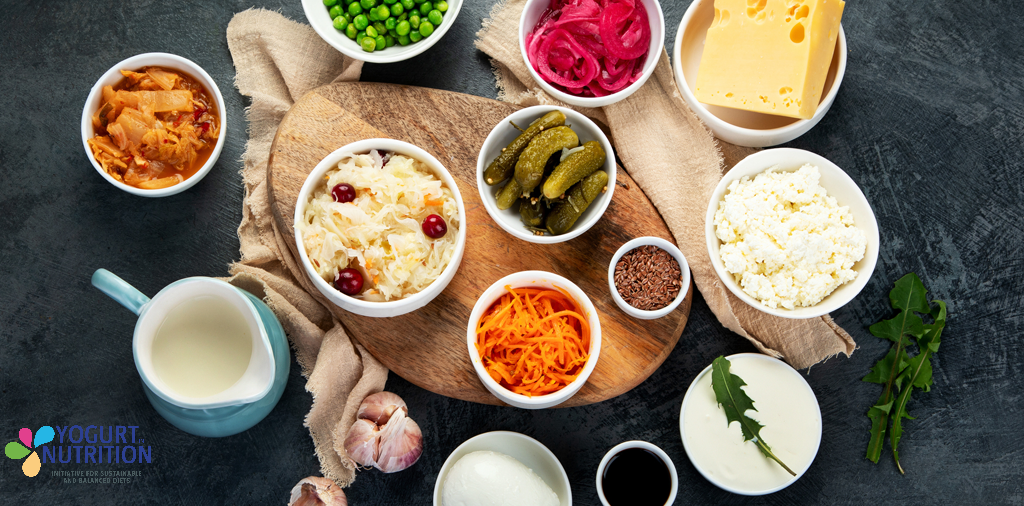If you’re looking for a tasty way to contribute to your health, here’s your answer. This recent publication tells us that foods fermented by lactic acid bacteria (LAB) provide a package of health benefits, making them perfect for adding to your everyday diet (1).
These LAB fermented foods are bursting with probiotic bacteria and beneficial bioactive compounds that are released during fermentation and digestion.
What do the lactic acid bacteria do?
The Lactic Acid Bacteria (LAB) break down sugars and starches in food to produce lactic acid. This fermentation process preserves the food and changes its flavour and texture – and that’s why fermentation has been used for centuries around the world.
But now we know that probiotic LAB and by-products of fermentation – such as bioactive peptides, vitamins, antimicrobial molecules – may also be associated with a host of health benefits. These include boosting the numbers of beneficial bacteria and destroying harmful bacteria in the gut, stimulating and regulating the immune response, maintaining bone health, lowering cholesterol in the blood, and reducing blood pressure. They even have anti-diabetes and anti-cancer effects.
So why not top up your shopping list with your favourite LAB fermented foods, or perhaps try some new ones?
Here are five of the most popular LAB fermented foods:
1. Yogurt
Yogurt is made by fermenting milk with a starter culture of LAB. After processing, some yogurt products may have other live probiotic bacteria added. Yogurt is high in nutrients. Due to the fermentation process, yogurts may also have small amounts of lactose, and can be an option for people who are lactose-sensitive, depending on how many grams of lactose are present in the product and the level of intolerance (2,3).
2. Kefir
Kefir is a fermented milk drink made using kefir grains that contain bacteria and yeasts. This drink has been produced since ancient times and is now readily available in supermarkets.
3. Cheese
During prolonged ripening of cheese, LAB breaks down lactose completely so aged cheese have less than 1% of lactose, suitable for people who are lactose sensitive. The lactose rate in cheese will depend on the level of cheese maturation. While fresh cheeses have a higher percentage of lactose, aged cheeses have much of their lactose transformed into lactic acid. Lactose is also separated and drained off with the whey during the aging process, which brings the lactose percentage down with it (3).
4. Sauerkraut
Sauerkraut is the product of cabbage fermentation. Cabbages are rich in health-boosting phytochemicals – fermentation increases our ability to absorb these compounds.
5. Kimchi
Kimchi is a traditional Korean food made from fermented vegetables, usually cabbage.
Research to confirm the benefits of fermented foods
‘LAB’s ability to produce bioactive peptides, vitamins, organic acids, bacteriocins, signalling molecules (NO [nitric oxide]), and antimicrobial compounds (H2O2 [hydrogen peroxide]) plays a fundamental role in promoting and maintaining a health status in consumers of LAB-fermented products.’ – Castellone et al, 2021.
Many of the health benefits that have been associated with fermented foods are based on isolated components of fermented foods and their observed effects in animal and in vitro studies, the authors of this article point out. They’re calling for large-scale clinical studies of LAB-fermented foods to see if these observations translate into beneficial effects of these whole foods on our health.



